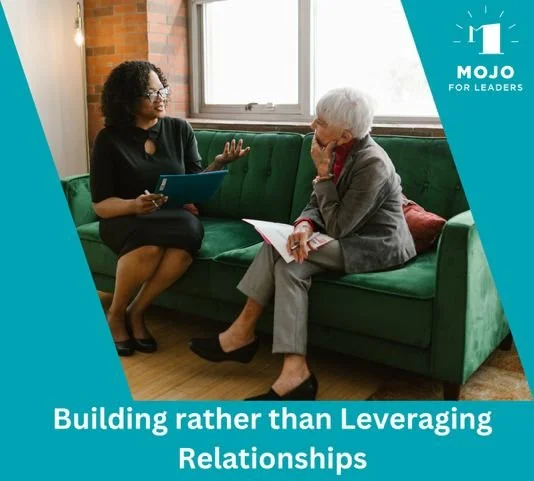
Building rather than leveraging relationships
Here’s the pattern we’re talking about:
We build wonderful, trust-filled relationships.
We nurture and take care of them.
And we never, ever, leverage these relationships – somehow it feels like ‘using’ or ‘taking

Over-valuing Expertise
This one we see all the time – especially when women take up new roles!
Even though expertise is important, we know that there’s extra pressure on women to ‘prove ourselves’ when we take up new roles – especially in new organisations – in fact Catalyst Longitudinal Research has shown that women do better staying with an organisation where they’ve already proven their worth as a lot of moving can mean a lot of proving… we can end up giving as much as a whole year proving ourselves in a new organisation before our expertise is accepted and taken for granted.
All that said, our point here is that, even though women can be somewhat ‘forced’ into putting emphasis on proving their expertise when taking up new roles, we think this is not the best option.

Expecting Others to Spontaneously Notice and Reward Your Contributions
In our experience the root of this factor may lie in our attitude to organisational politics!
There are all sorts of words and expressions we use for those we see constantly telling the key people in our organisations how wonderful they are!
And we’re above that, aren’t we?
Our quality work should be seen, judged on facts, logic, analysis, creativity, innovation - and recognised as such. We shouldn’t have to go around telling people what our successes are. The work should stand in its own right.
Well, perhaps - and perhaps not….

Being Able to Ask Good Questions is Essential to Leading Effectively
In our work with leaders, we often share an image of a dense jungle with two speech bubbles rising up from it. One speech bubble says 'Hold on folks, we are in the wrong jungle!' and the other says 'Shut up! We are making progress!' How many times has this happened to us where we go full throttle after a solution, only to discover that we had not defined the problem, or asked the right question in the first place! Wise, carefully thought-out questions are worth their weight in gold.
